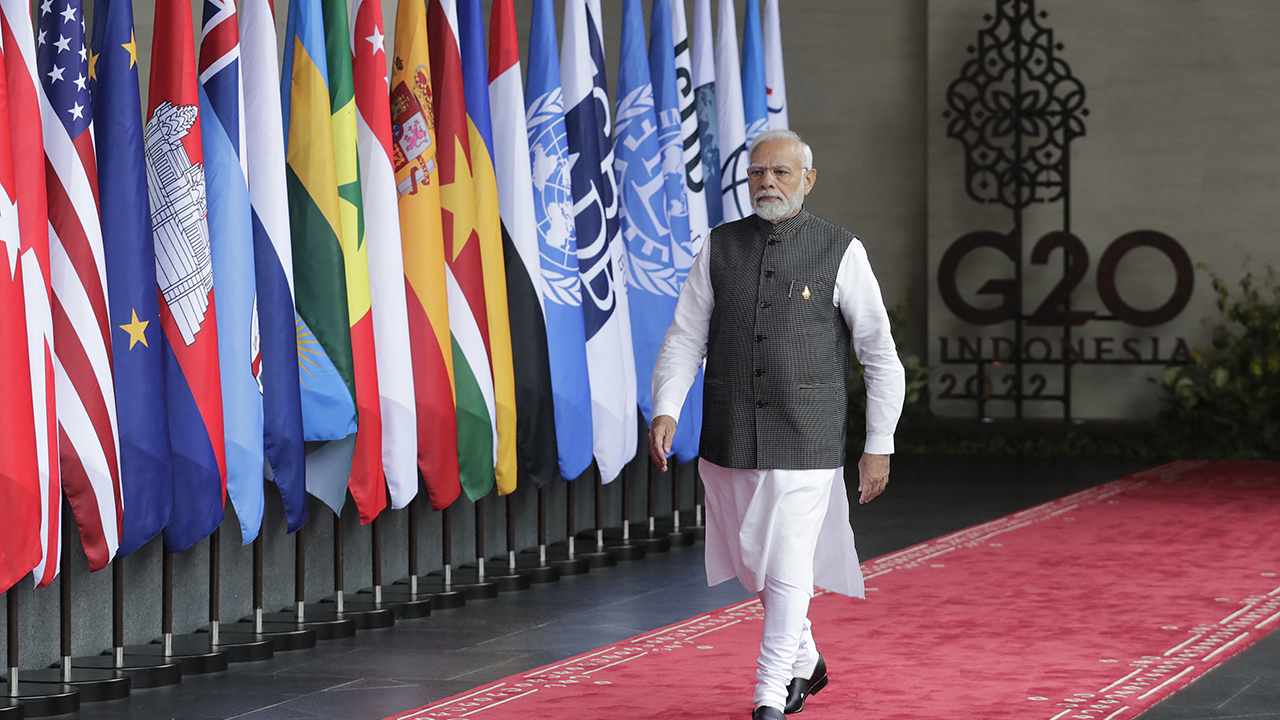
Greatest Threats Around the World
People around the world identify ISIS and climate change as the leading international threats. Many also name cyberattacks from other countries and the condition of the global economy as major challenges.
People around the world identify ISIS and climate change as the leading international threats. Many also name cyberattacks from other countries and the condition of the global economy as major challenges.
People around the world identify ISIS and climate change as leading international threats. Many also name cyberattacks from other countries and the condition of the global economy as major challenges.
People around the world strongly disapprove of Trump’s signature policies, but his planned U.S.-Mexico border wall stands out for its unpopularity.
Ethnic Russians are a sizable minority in several former Soviet republics, and many are more favorably inclined toward Russia than their fellow citizens are.
Globally, Trump is much less popular than his predecessor, and only a few countries have positive views of Trump. See nine charts that highlight international perceptions of Trump.
Across 38 nations, a median of 42% say the U.S. is the world’s leading economy, while 32% name China. But the economic balance of power has shifted in the eyes of some key U.S. allies and trading partners.
Americans and many in the Asia-Pacific region hold negative views of North Korea and its nuclear weapons program but are divided on what to do about it.
More Christian than Muslim refugees have been admitted to the United States in the first months of the Trump administration, reversing a trend that had seen Muslims outnumber Christians in the final fiscal year under President Barack Obama, a Pew Research Center analysis of U.S. State Department refugee data has found.
Few people in G20 member countries have confidence in either Donald Trump or Vladimir Putin to do the right thing regarding world affairs.
Brazil today is entangled in a profound economic and political crisis. Read key findings about Brazilians’ views of their country’s ongoing challenges.
Across 12 countries, a median of 40% of adults say they have no confidence in Indian Prime Minister Narendra Modi to do the right thing regarding world affairs. About eight-in-ten Indians have a favorable view of Modi.
Majorities in most countries say China does not take into account the interests of other countries in its foreign policy, and China does not contribute to global peace and stability.
Across 24 countries, large shares have an unfavorable view of Russia and no confidence in Putin to do the right thing regarding world affairs.
Overwhelmingly, people believe the U.S. interferes in the affairs of other countries, but most also believe the U.S. contributes to peace and stability around the world. U.S. President Joe Biden receives mostly positive reviews.












